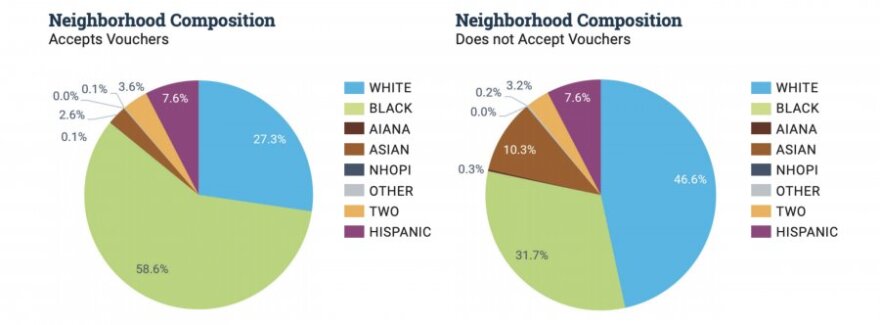The U.S. Department of Housing and Urban Development, or HUD, rejected the Richmond housing authority’s annual and five-year plans. Federally-funded housing authorities are required to submit these plans annually.
VPM obtained the September 30 rejection letter through a public records request.
Richmond Redevelopment and Housing Authority (RRHA) plans to demolish the city’s largest public housing properties to make way for mixed-income developments, some of which will include market-rate units. At the same time, the agency is moving to expand the voucher program for residents to use in the private market instead of building more public housing units. Properties slated for redevelopment include: Fay Towers, Gilpin, Creighton and Mosby Courts — that’s over 1,500 units. RRHA needs HUD approval before moving forward with these redevelopments. The agency has to apply separately to demolish any properties
According to the letter, “FHEO (HUD’s Office of Fair Housing and Equal Opportunity) recommends that the PHA (public housing authority) be cautioned to ensure that it is considering the identified housing needs of applicants and residents when making plans to redevelop its housing projects.”
Angela Fountain, a spokesperson for RRHA said in an email that HUD’s rejection was the result of a “few technical deficiencies,” and called HUD’s request that RRHA provide additional information about the plan “routine.” However, a spokesperson for HUD denied Fountain’s claims, and said that “RRHA missed the plan was disapproved for substantive deficiencies”.
According to the agency’s annual plan, there's a great need for housing to serve residents making 30% or less of the area median income (AMI). That’s most of RRHA’s residents and applicants. More than 90% of families on the waiting list fall into this income range — the same goes for more than 95% of elderly applicants.
This graph illustrates what residents who make 30% or less of the AMI earn annually according to HUD:
Omari Al Qadaffi is a housing organizer with the Legal Aid Justice Center. He said HUD’s letter echoed concerns raised by residents and activists last summer, including where some residents will live after the projects are complete, since not all of the units are being replaced.
“If you’re bringing in market rate rents, and you’re not really providing units right here in the city for people that can’t afford market rate units — you’re just going to displace people,” Al Qadaffi said.
Fountain said the agency intends to offset the net loss of units with vouchers for residents to use in the private market, and in the proposed redevelopments.
HUD’s rejection letter said RRHA also failed to include a required analysis of barriers low-income residents face when looking for housing in the private market. This year, Housing Opportunities Made Equal (HOME) released a report that said housing vouchers contribute to areas of concentrated poverty because so few private landlords accept vouchers. The report added that about 90% of choice voucher recipients in the Richmond region are Black — significantly higher than the national rate of just 48% and the state rate of 70%.

In an email, Fountain said the agency will prioritize the use of project-based vouchers, which can be used at RRHA properties.
RRHA’s plans were also rejected for having contradictory language about whether it intends to designate public housing units for the “elderly and disabled families”.
“Specifically, RRHA stated that a housing project with occupancy only for elderly families would be designated in the upcoming year, however, in the same paragraph, the PHA (public housing authority) stated that ‘RRHA does not intend to designate any of its public housing units for occupancy by elderly and disabled families’,” the letter said.
RRHA didn’t say when the agency would resubmit its plans — but when it does, HUD has up to 75 days to review the revised documents. The agency will have to conduct another round of public hearings and review public comments, since the updated plans will differ from what was presented to the Resident Advisory Board (RAB) and the public last summer.
This story was updated to correct an error stating that Richmond Redevelopment and Housing Authority would not be required to hold a public hearing and comment period before resubmitting its plans. The original information came from a fact sheet RRHA sent VPM, but was corrected with information from HUD.
VPM's Whittney Evans contributed to this reporting.











